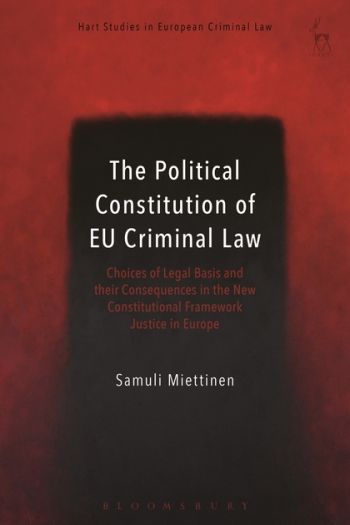
How is EU criminal legislative competence regulated after the Lisbon Treaty? Is it based on a legal constitution, reviewed by judges, or should the system be described as a political constitution, largely in the hands of the legislature?
This study asks what powers have been conferred on the Union in the field of substantive criminal law and how the exercise of its powers may be reviewed after the entry into force of the Lisbon Treaty. The questions raise a wide range of issues relevant to EU criminal law, but also to EU constitutional, administrative and institutional law.